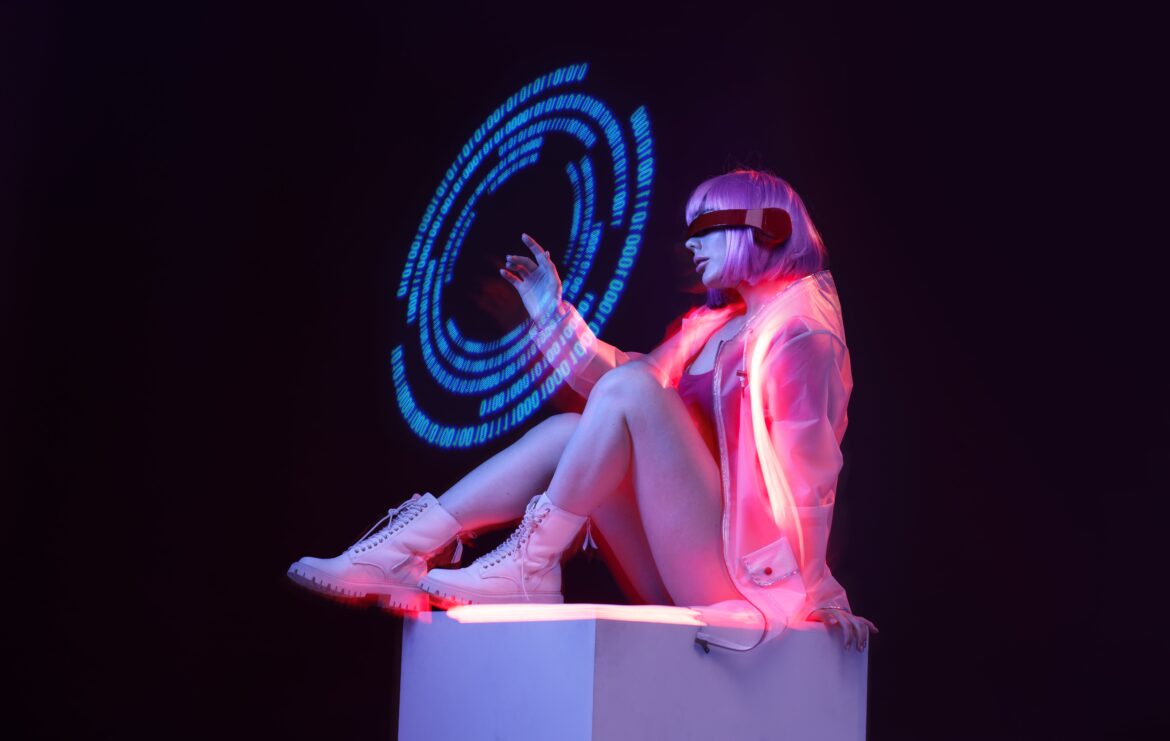The fashion industry has seen a revolutionary transition recently, fusing technology and apparel to create an exciting new sector known as Fashion Tech. The cutting-edge capabilities of wearable technology and smart clothes are combined with the aesthetics of fashion in this dynamic industry. Fashion tech is changing how we use clothing and accessories, from tracking health and fitness to improving user experiences. This article explores the fascinating realm of wearable technology and smart clothing, emphasizing their importance, potential, and influence on the direction of fashion in the future.
The Rise of Wearable Devices
Electronic tools worn on the body as clothes, accessories, or implants are known as wearable devices or wearables. The most typical examples include health-monitoring tools, smartwatches, and fitness trackers. Due to their capacity to monitor vital signs including heart rate, sleep patterns, and physical activity, these gadgets have become incredibly popular. Wearables provide functionality and convenience and have evolved into a style statement that enables users to show off their individuality while remaining online.
Smart Clothing: Fashion Meets Technology
By incorporating technology right into the fabric, smart clothing elevates the idea of wearable technology to a whole new level. These clothing items can collect biometric data, regulate temperature, and even react to environmental changes thanks to embedded sensors, conductive threads, and microelectronics. Designers are concentrating on the looks of smart clothing in addition to its usefulness to make sure it blends in with regular apparel.
Health and Fitness Revolution
Health and fitness are two of fashion technology’s most important effects. Wearables are becoming popular among fitness freaks and anyone who cares about their health because they help people track their exercises, create goals, and analyze performance data. On the other side, smart clothing can monitor vital indications like heart rate, body temperature, and muscular activity, giving athletes and medical experts equally useful information. Users are now able to take control of their health while still looking fashionable thanks to these developments.

Collaboration and Cross-Industry Innovation
Collaborations between fashion designers, tech businesses, and researchers from various disciplines are being sparked by fashion tech. Cross-industry collaborations are producing ground-breaking inventions like responsive clothing that adapts to the wearer’s body temperature or environmental conditions and biometric detecting materials. These collaborations are encouraging a more interdisciplinary approach to fashion design and providing a fruitful environment for innovation.
Fashion and Sustainability
Fashion tech has a significant impact on the industry’s transformation at a time when environmental responsibility and sustainability are becoming increasingly important. Sustainable fabrics, such as biodegradable fibers and recycled fabrics, can be used in smart clothing to lessen their impact on the environment. Additionally, wearable technology can promote sustainable behaviors like eco-friendly lifestyle choices and energy-efficient usage. Fashion Tech is pushing the industry towards a greener future as consumers want more environmentally friendly solutions.
Enhanced User Experiences
In addition to data and functionality, fashion technology also aims to improve user experiences. The incorporation of augmented reality (AR) and virtual reality (VR) technologies into apparel and accessories allow for immersive interactions and individualized purchasing experiences. Customers may digitally try garments on, experiment with various looks, and get fashion advice in real-time, resulting in more educated and certain buying decisions.
Challenges and Future Directions
Fashion Tech has a lot of potential, but it also has certain problems. These include privacy issues because wearable technology collects sensitive user information and the requirement for smart clothes with longer battery life and greater durability. However, these difficulties should be overcome as technology develops and designers continue to innovate.
With ongoing improvements in sensor technology, AI-powered insights, and seamless integration into our daily lives, the future of fashion technology appears bright. Wearable technology and smart clothing will surely become essential components of our wardrobe as the fashion industry embraces technology and customers seek more individualized experiences, revolutionizing the way we dress and engage with the world around us.


